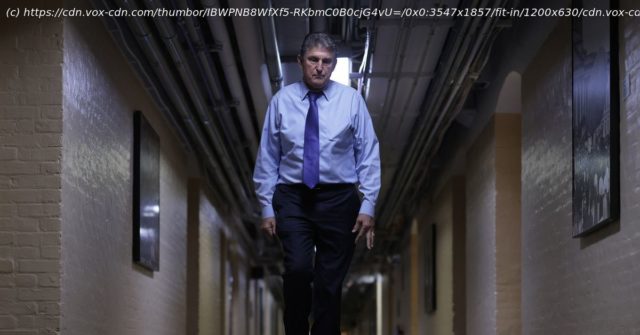The conservative Democrat said he couldn’t vote for the bill, despite months of negotiations.
The Build Back Better Act — at least as currently written — is dead, Sen. Joe Manchin (D-WV) said Sunday in an appearance on Fox News Sunday. Whether it can be resurrected in some new form depends on Manchin. The bill, which proposed $1.75 trillion in social and climate spending, has been on shaky ground for a while. Despite the measure being a key part of President Joe Biden’s agenda, Manchin has for months raised concerns about the bill’s scope and cost. Now, Manchin, whose vote is crucial given Democrats’ slim majority in the Senate, says he won’t support it because of concerns about the resurgent Covid-19 pandemic and rising inflation. “I cannot vote to continue with this piece of legislation,” Manchin told Fox News Sunday host Brett Baier. “This is a no on this legislation.” Manchin has repeatedly claimed that BBB spending would increase and entrench inflation, although the White House and many economists have pushed back on this. A letter from 17 Nobel Prize-winning economists in support of the bill’s policies argues that, in the long term, it will actually decrease inflation: At a Wall Street Journal event in December, when November’s Consumer Price Index numbers showed inflation rose 6.8 percent over the past year, the fastest increase and highest rate in nearly 40 years, Manchin claimed the new data proved the economists’ arguments wrong, although they were referring to longer-term trends. “We had people at that time saying inflation would be transitory,” Manchin said. “We had 17 Nobel laureates saying it’s going to be no problem. Well,17 Nobel laureates were wrong.” It remains possible that Manchin would support a different social spending package, though it’s not clear what that might look like. Biden’s domestic agenda has suffered a serious setback Any one senator has the power to derail Build Back Better because Democrats have the narrowest possible majority in Congress and hoped to pass the bill through the budget reconciliation process. That allows legislation to be passed by a simple majority in both chambers of Congress so long as its provisions are related to budgetary matters, circumventing the filibuster in the Senate. As the most conservative member of Democrats’ slim Senate majority, Manchin has used that fact to exercise outsized influence on the bill from the start — both its costs and its contents. Largely due to Manchin’s priorities, what began as a $3.5 trillion piece of legislation dwindled to about $1.85 trillion by the time it passed the House, and was facing further cuts in the Senate. Last week, Manchin quashed Democratic hopes that the bill might pass the Senate ahead of the chamber’s holiday break, again, due to cost and scope concerns. That forced Congress to end its 2021 session early Saturday morning after a run of ambassadorial and judicial confirmations.






